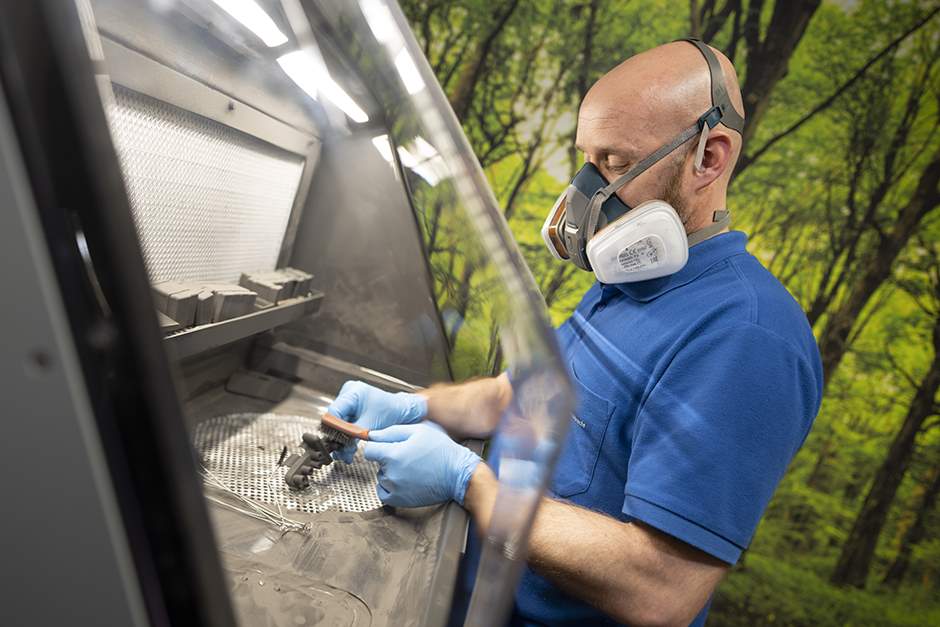Digitalization
In the scope of our Connecting Worlds strategy, we developed a longterm vision for IT that we translated into a practical roadmap with five digital goals:
-
Digital communication with patients and professionals
-
Data platform and data management
-
An engine for regional and national cooperation
-
User-friendly, reliable, and safe systems
-
Technological innovation
In 2023 we continued to work on the implementation of this roadmap. Some examples of actions are:
Getting employees on board for digitalization oppurtunities
To get employees on board for the opportunities that digitalization offers and show them the innovations that we are already using at UMC Utrecht, we organized two master classes in 2023. In these master classes, various colleagues for instance talked about the possibilities of 3D printing and the use of certain apps and virtual reality (VR) to improve care for patients. The master classes could be followed online by doctors and nurses. They got accreditation scores for it.

Giving further shape to electronic patient records
Within the Healthcare of Tomorrow program we are giving shape to internal processes within various domains. For all of these domains in 2023, we translated substantive blueprints for the future, and for the Healthcare of Tomorrow (2030), into concrete information needs and generic building blocks. We are using these as input for the further shaping and filling in of our electronic patient records HiX 6.3 Standard Content within our organization in 2024.
Multidisciplinary cooperation at a regional level
Together with other university medical centers we developed a singly countrywide data structure (CumuluZ). With this we will enable healthcare professionals in the Netherlands to collaborate flexibly in (regional) networks. Healthcare professionals can thus have insight into all the relevant information for a patient in order to provide the best patient-centered care. This will ensure that the best care remains accessible and affordable for patients. Because if we work together, we are more efficient and can also reduce costs. Besides healthcare, CumuluZ also affects and supports research. In 2023 we started to put together a development team for CumuluZ at UMC Utrecht. They collaborate with hospitals in the Utrecht region to allow fast and safe information exchange.
Meer impact voor patiënten More impact for patients
At UMC Utrecht we are creating more and more space in our organization for so-called ‘software robots’. In this way we are automating tasks that are repetitive, predictable and simple and that take up too much of our colleagues’ time to execute. Colleagues thus have more time to focus on other valuable tasks where we can have a greater impact for patients. In 2023 we automated hundreds of hours worth of manual labor.
Healthcare professionals reachable toe ach other
To ensure that healthcare professionals can easily reach each other, we are renovating and replacing the Nursing and Medical Call System (VOS/MOS). Obsolete parts of the telephone system such as the buzzer system were replaced by smartphones in 2023. With this care phone, healthcare professionals (nurses and doctors) can mutually facilitate care for patients and organize and coordinate more efficiently with one another. In 2024 we are expanding this by making HiX accessible via care phones. Nurses can now directly check and import information at the patient’s bedside. This saves time and improves the care that they give to the patients.
Safe digitalization
In 2023 we performed our yearly audits for the annual report (IT General Controls), Security certifications (ISO27001 and NEN7510), and the use of DigiD. These were concluded successfully.